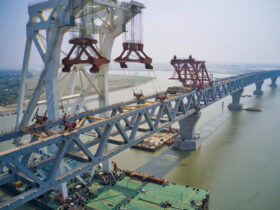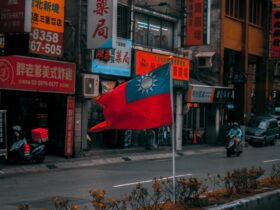2020 dealt a monumental blow to Japan. Amid the pandemic, the highly anticipated Tokyo Olympics were postponed to the following summer, in 2021. For the first time in history, the Olympic Games had to be suspended for a reason other than war.
Now, a year later and just five months from the rescheduled start date, the nation languishes in a state of emergency with over 1,000 COVID-19 cases per day. Public support for the Olympics has also plummeted; one poll showed that 80% of the Japanese public think that the Games should be canceled or further delayed, while others fear it will become a super spreader. In the face of all of this, why is the Japanese government still so adamant that the Games must go on?
A key concern is the economic repercussions. Organizers have said that the cost of postponing the Games run up to $15 billion, though audits by the Japanese government show that they are at least $25 billion. It is understandable that the country, which was grappling with a declining economy even before the pandemic, would try at any expense to recoup its sunk costs.
The Olympics was thought to be the sweet swan song of former prime minister Shinzo Abe. It was supposed to reinvigorate the economy by increasing jobs, tourism and consumer spending under his brand of “Abenomics.” Now that tourism seems unlikely for the time being, Japan would want to at least hold on to the billions of sponsorship revenue from the Games. The International Olympic Committee (IOC), which earns almost three-quarters of its income selling broadcasting rights, would likewise be pressuring Japan to continue the Games, with spectators or without.
More than just an economic revival, Tokyo 2020 was meant to be Japan’s resurgence in the global arena. The first time Japan played host was in 1964, a roaring comeback after the cancelation of the 1940 Tokyo Games due to World War II. Tokyo wowed the world with bullet trains and shiny new stadiums, signaling the nation’s post-war recovery and boosting national pride and its global image.
In a similar vein, the 2020 Tokyo Games were dubbed the “Reconstruction Olympics” after the 2011 Fukushima disaster. One may say that in a broader sense, reconstruction now carries a double meaning: reconstructing national confidence, especially in the pandemic era, and reconstructing Japan’s image.
Another consideration is the East Asian cultural concept of “losing face”. Losing face is when one’s reputation is tarnished, incurring public shame. The Japanese government would “lose face” among its people if they canceled the Games now, especially after the resolute tone the country has adopted. But if the Games turn out to be successful, this accomplishment pulled off by the government would surely go down in history.
On a personal level, current Prime Minister Yoshihide Suga might feel obliged to honor his predecessor’s wish to host the Olympics. Described by Japanese media as Abe’s “loyal right-hand man,” Suga worked under the former prime minister as the chief cabinet secretary for eight years before Abe resigned. “I will carry on former Prime Minister Abe’s policies and push them forward in order to overcome this national crisis,” Suga said in his first speech as the new prime minister. Tokyo 2021 would realize Abe’s dream and help Suga avoid losing face to Abe and the rest of his political party.
Canceling the Olympics will also mean losing face to China. Like their last Olympics, Japan intended to use Tokyo 2020 to indicate recovery and reassert their dominance in Asia. It was to be the nation’s dramatic bounce back from the economic stagnation that has plagued them over the past decades, stimulating investment and confidence from abroad. Instead, with the 2022 Winter Olympics slated to take place in Beijing, conservatives would undoubtedly see it as shameful if the title of hosting the first post-pandemic Olympics goes to their regional rival.
Most recently, Japan managed to secure unanimous support for the Olympics from its allies in the G7. The G7 communique stated that the Games, which are to be held in a “safe and secure manner”, will serve as a “symbol of global unity in overcoming COVID-19.” This puts even more pressure on the country to not just carry out the Games, but do so in a safe manner to prevent competing international athletes from opting out.
Transcending the personal, the national, and the international is the very spirit of the Olympics, a mark of humanity’s extraordinary resilience. Suga likes to frame Tokyo 2020 as “proof that humanity has defeated the virus.” Regardless of whether that’s just talk, it is undeniable that these Games will set a precedent for all Olympic Games to follow, as well as the broader “new normal”. It seems, then, the “Reconstruction Olympics” is not just about reconstructing Japan but the whole post-pandemic world.
Despite Japan’s bravado, the future remains as unpredictable as ever. Nobody will be able to tell for certain how the pandemic will develop in a few months, or if sporting unions will boycott the Games out of health concerns. While there may be a light at the end of the tunnel with the increased global rollout of vaccines, the process is slow in Japan, where many citizens are wary of getting vaccinated. Nevertheless, even as new strains and public health challenges continue to develop, we can be sure that Japan will try, at all costs, to keep the Olympic flame alive.







